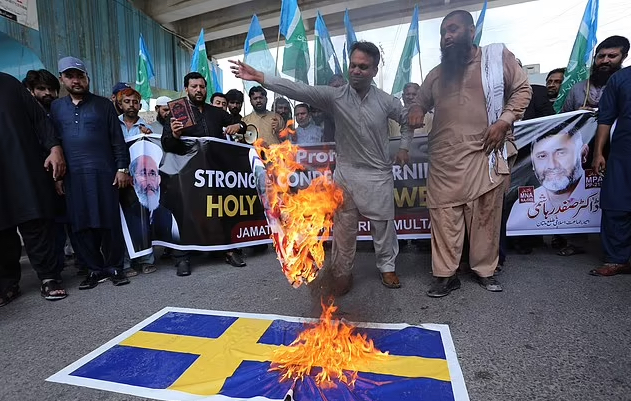The burning of a Quran in Sweden last week, which led to protests and diplomatic tensions, has raised concerns within the United Nations. The UN’s Human Rights Council has announced that an urgent session will be held to address the incident. The burning occurred outside the main mosque in Stockholm on June 28 when an Iraqi man, Salwan Momika, stomped on the holy book, placed bacon between its pages, and set some pages on fire. This act ignited anger not only among Muslims celebrating the Eid al-Adha holiday but also among Muslim-majority countries worldwide.
The repercussions of the incident were significant. The Swedish embassy in Baghdad was stormed by angry Iraqi protesters, and Turkey, currently impeding Sweden’s bid to join NATO, expressed its displeasure. Pakistan and other nations called for a discussion on the increasing instances of premeditated and public acts of religious hatred, particularly the desecration of the Holy Quran in European and other countries.
In response to Pakistan’s request, the 47-member Human Rights Council decided to hold an urgent debate on the matter during its ongoing second session, which concludes on July 14. Khalil Hashmi, Pakistan’s ambassador in Geneva, wrote to the council president on behalf of the Organisation of Islamic Cooperation (OIC) members and other OIC countries, condemning the provocative acts and demanding immediate action.
While acknowledging the right to freedom of opinion and expression, the OIC group aims to prevent similar incidents and establish legal measures as deterrents. The group plans to propose a resolution for adoption by the council members, which will be circulated soon.
The burning of the Quran was widely condemned globally. The Swedish government, while condemning the act as Islamophobic, emphasised the constitutional protection of freedom of assembly, expression, and demonstration.
The incident has triggered reactions from various countries, with Swedish ambassadors being summoned by Saudi Arabia, Iraq, Kuwait, the United Arab Emirates, and Morocco in protest. Swedish authorities initially granted Momika a permit based on free speech rights but later launched an investigation for “agitation.”
The urgent debate at the Human Rights Council aims to address the issue promptly and find ways to prevent future acts of Quran burning. The incident has highlighted the delicate balance between freedom of expression and religious sensitivities, prompting a call for collective measures to avoid such incidents in the future.







